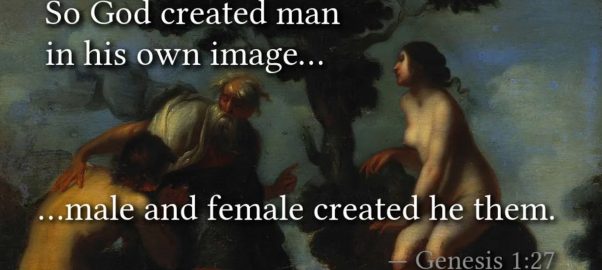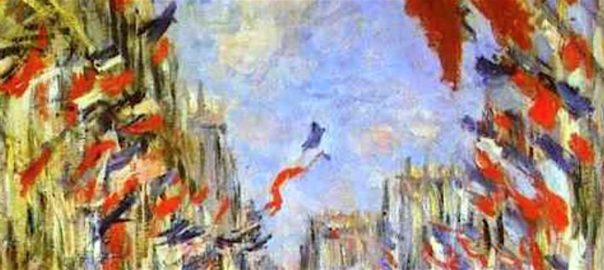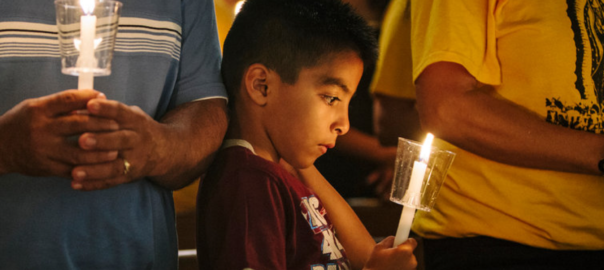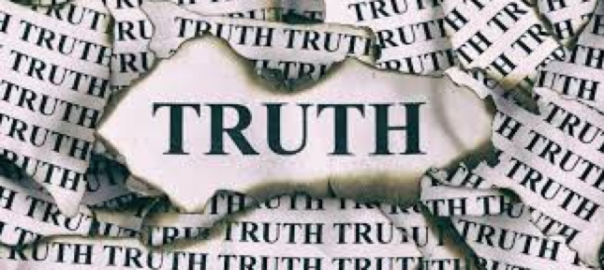
Indignation concerning the anthropological anarchy of our age is understandable and moral outrage concerning the propaganda directed at vulnerable children and adolescents is appropriate. But indignation and outrage must give way to thoughtfulness and reimagination of the good so that the beauty of “normal” can recapture hearts and minds. In the last post, we shared the current gender and sexual identity crises and offered some pillars of wisdom for social progress. In this essay, we will explore the foundations for recovering our sanity and social conscience. Here are five foundations that will help us rebuild, renew, and restore virtue.
One: We begin with the bookends of the Bible: Genesis 1-2 and Revelation 21-22. Here we see the divine design and destiny of humankind. Before you read further, I am not advocating for theocracy or demanding that everyone adhere to all the Bible. I am painting a picture of humanity that, as we shall see, is shared by most of the world, regardless of culture or religion. The poetry of Genesis 1:26-28, 5:1-2, and Revelation 21-22 presents three things about humankind that are liberating and foundational to much of our discussions on human rights:
- Every person is fashioned in the divine image. Even when sin and evil enter the picture, this image is effaced, not erased.
- Every person is designed to both “dwell” with God and “do” work with God, tending to communion with the divine and stewarding creation.
- And every divine image bearer enjoys God and creation as a male or female. The wedding song of Genesis 2 speaks of equality and mutuality. Genesis also anticipates the eternal future of Revelation 21-22 where, “the dwelling place of God is with humankind” and the restored community brings the fruits of their (non-oppressive) labor to the Holy City.
Yes, in our fallen, imperfect world, there are some (<0.2%) intersex individuals, but this does not change the general principles. All people need compassion and welcoming friendships.
Two: With this overall dignity and equality in mind, we must labor so that all have access and opportunity to flourish. So much of human history includes male dominance, ethnocentric oppression, and religious and political suppression. Both religious and non-religious advocates of justice can unite around the flourishing of persons and communities, neighborhoods and nations. Being very vulnerable, Christian communions can do much better in fostering true equality, inclusivity, and opportunity. Too often, in reaction to pagan and secular opposition, Christians have sought refuge in fallen, subcultural gender norms that are not biblical or liberating. There is still a long road ahead for cultural and ethnic inclusion in many places.
Three: Those who live with same-sex attraction are not less human than heterosexuals. Within Christian community, both groups are called to celibacy if single. Both are called not to lust after or objectify people to whom they feel attracted. Sexual intimacy outside of the marriage of one man with one woman is morally wrong, but there is grace for those that struggle. The Bible itself is full of people violating divine norms, and when they repent, God is present to forgive.
All people must beware of their disordered loves. Our perennial problem is allowing immediate attractions to triumph over unselfish affections and actions. Too many people are letting their current (remember, it can change) erotic proclivities be key to their identities. There is so much more to every person than momentary passions! Please note: chosen gender identity is a completely different category than biological sex or race which are natural givens.
Private, consensual adult sexual behaviors are part of a pluralistic world. While the Church can stand for its virtues, we must not reimpose intolerance. This does not mean that it is intolerant to call unbiblical behavior immoral! Jewish and Muslim traditions share much of the same morality with Christians. While Buddhist and Hindu schools vary widely, all promote self-control and family harmony. Secular Stoics often join with other non-religious advocates in arguing for moral discipline concerning sexual behavior.
Four: Empirical research and rational reflections must be welcomed as antidotes to complete subjectivism and the triumph of feelings over critical thinking. It is amusing seeing the lawn signs affirming “science is real” while science is utterly ignored concerning biological identity and the consequences of wanton disregard for sexual discipline. The very few and limited studies concerning the neurology of trans identities fails to prove anything other than social influences affecting brain activity. Even uncovering potential markers for certain feelings does not change the binary nature of humankind.
Five: These issues are ultimately spiritual in nature. From the Communist Party USA platform of 1964 calling for the destruction of the nuclear family to present caricatures of “cisgender” identity, evil forces are out to, “steal and kill and destroy” humanity (John 10:10a). From AI advocates calling for man-machine singularity to earth first radical environmentalists desiring a human population half its current size (and seeing humanity as parasitical), we see the demonic designs against the goodness of being human. This is ancient paganism refashioned for modern tastes. Sexual debauchery as religious activity, killing children in and out of the womb, and sexual role reversals were all part of the idolatry, immorality, and injustices the Hebrew prophets, Jesus, and the Apostles warned God’s people about.
In contrast, people of faith have been advocates for the vulnerable, peacemakers in the midst of war, and stewards of creation instead of worshiping natural forces and hating being human. The second part of John 10:10 declares that Jesus comes to give life abundantly, overflowing…IF we receive him and follow his commands to love God and neighbor unselfishly. Contemporary haters of Judaism and Christianity think they are liberating humanity from religious oppression and that their recent notions of morality are new. The opposite is true here. Purveyors of sexual anarchy and promoters of subjectivity are actually neo-pagan adherents building a new Tower of Babel dedicated to Self.
As we stand for love and truth, we must do so with compassion and courage, hospitality and humility, always desiring for all the liberties we desire for ourselves.



